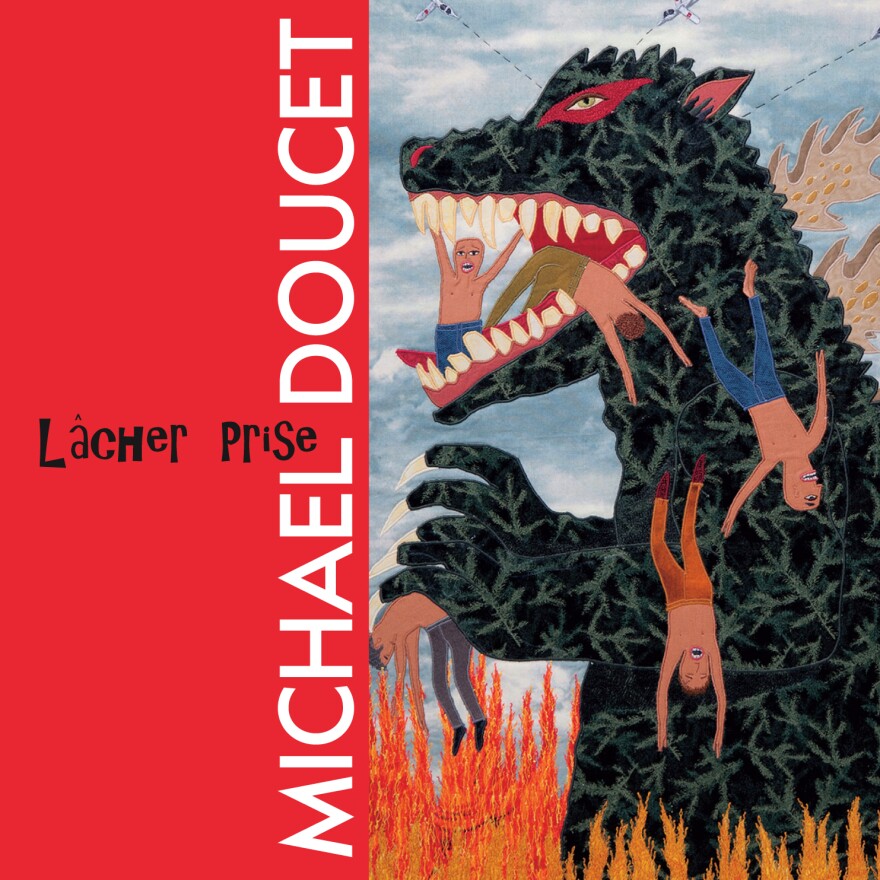In the late 1960s and early 70s, folk musicians around the western world were thinking impure thoughts. Bob Dylan, The Byrds and The Band set ballads and characters and tropes from the American roots to electrified beats. Over in London, the Fairport Convention made folk rock out of old British source material. In Kentucky, New Grass Revival was blaspheming bluegrass. Not to mention the Nitty Gritty Dirt Band and the Earl Scruggs Revue.
It would have been quelle surprise if a similar yearning to cross the trad with the rad didn’t infiltrate the old Cajun sound down in French speaking Louisiana. And sure enough, there was college-age Michael Doucet, creating the band Coteau in the early 70s.
STREAM OR DOWNLOAD THE STRING HERE
“They called it the Cajun Grateful Dead,” Doucet told me in a segment of our interview that did not make the final edit of this week’s String. “It was a young band. We had twin fiddles. Twin guitars. We could play anything from the Gulf Coast. And we wrote our own material too. But the greatest thing about Coteau is that we brought the young and the old together. Because the young people thought this was like brand new music, and I said, ‘No that’s a 200-year-old song!’ And the old people were just glad to hear their music being revived and kids being excited about it.”
Today, Cajun culture is recognized worldwide as a nexus of great food, music and bilingual soul. Then, Doucet said, his people were often marginalized and disrespected. “We were like second class citizens, speaking French,” he said. “Our lifestyle, our cuisine, our customs, etc. But I grew up with Elvis Presley. So I always had this rock and roll mentality and at the same time I loved traditional music. That’s what I learned. It was all around us.” So having heard Fairport Convention, among others, “I said we can do that.”
Coteau paved the way for Doucet’s life’s work, the band Beausoleil. Since 1975, it’s grown into the world’s most famous Cajun band, one that can throw down in the old school or dress an old song up in new garb or write original songs that sound 200 years old. The band has played around the world, won a couple of Grammy Awards and performed at Jimmy Carter’s presidential inauguration. In 2005, Doucet was recognized with a National Heritage Folk Fellowship for his decades of preservation, scholarship and musical output.

Doucet sat down with WMOT as he prepared to release a debut album with a side project that reflects his interest in collaborations and in stretching the Cajun sound even farther than might be right for Beausoleil. The groups and the album are called Lâcher Prise, which Doucet translates as “let go” in the spiritual and musical sense. It’s made of nearly all original songs (except for the must-hear Boozoo Chavis classic “Lula, Don’t You Go To Bingo”), and while they certainly pulse and surge with the timbres of Cajun accordion and fiddle, they’re unafraid to reach out to partake of North African, Caribbean and funky New Orleans sounds.
In our conversation, Doucet tells of meeting his vocal partner for the project Sarah Quintana in New Orleans during a recent Mardis Gras. He was strolling the city with a bunch of friends, which led to a bar. A masked woman struck up a conversation, and it developed that she was a musician. “She sent me a song. I loved the style,” he says. “I said okay let’s get together and see what happens. We played one song and that was it. About two weeks later we performed our first gig. We’ve been playing together ever since.”
Cajun and Creole music may be America’s most distinctly regional folk tradition, more tightly defined and geolocated than bluegrass and still vital and socially relevant on its home ground. It’s a scene one has to visit to fully appreciate. “Our music was created by the fact that you work real hard in a god forsaken place of snakes, mosquitos and alligators,” Doucet says. “But man you play just as hard. That’s how this music was forged, and that’s what we do.”


